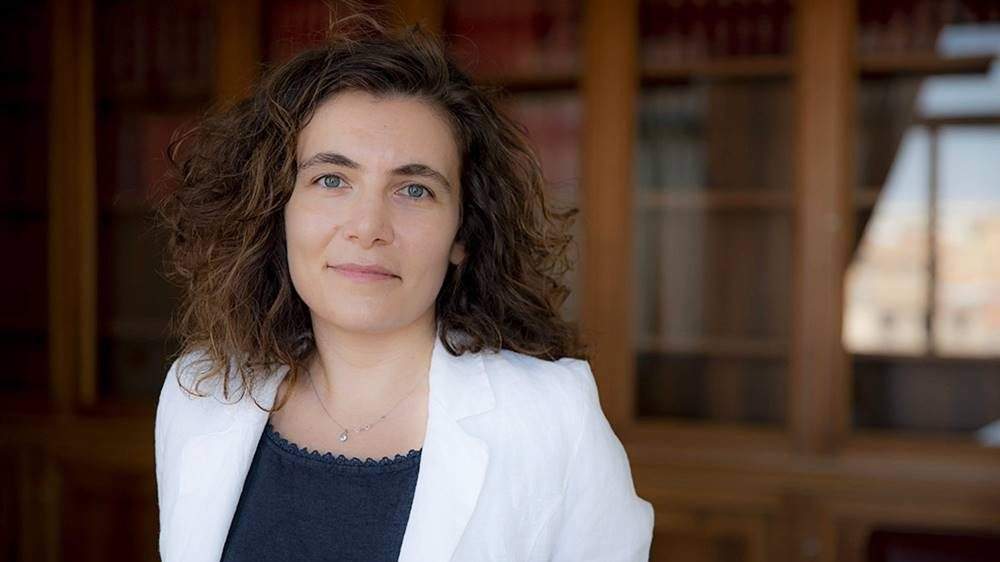The health emergency over the spread of coronavirus Covid-19 should also be a time to think about how to boost culture and tourism. This was said by Undersecretary for Cultural Heritage Anna Laura Orrico while participating in a Facebook live broadcast as part of the event The Bench of Verses. Festival of Sharing Against the Coronavirus, organized by poet and publisher Giuseppe Aletti as part of World Poetry Day on March 21. Orrico, after thanking doctors, health workers, law enforcement, entrepreneurs and workers who are “on the front lines” and “ensuring that our country faces this emergency head on,” and after reminding everyone of their obligation to stay home, analyzed the emergency from the perspective of culture and tourism.
First, Orrico analyzed the measures put in place by the government to enable the sector to limit the damage in this bad situation: “an important effort,” Orrico called it, who recalled the measures taken (the 600-euro bonus for entertainment workers and seasonal tourism workers, the reimbursement of travel stays and tickets for theaters, concerts, museums and exhibitions, the creation of the 130-million-euro emergency fund that will support cinema, audiovisual and entertainment operators). Orrico then recalled how the Ministry of Cultural Heritage has deployed a major effort to reach the public through social media, with in-depth reports, videos and virtual tours.
Turning to current events, the emergency, according to Orrico, can be “an opportunity to strengthen the bond with our cultural heritage, to study, to read, to devote ourselves to the forms of art that we have had to neglect in our daily lives.” It is therefore the time to think about the revitalization of the country. “We must already start thinking about the future,” Orrico said, “we must project ourselves into the future. One of these futures is certainly the revitalization of our villages, historic centers, of what is capillarily a cultural heritage, material and immaterial, spread throughout the peninsula.” Orrico proposes "a festival dedicated to the villages that can bring together all the good practices of village regeneration through culture, technological innovation, digitization, and the construction of small smart cities, that is, villages made smart through the use of new technologies. But also a festival that can tell us how a new system of well-being and community can be reactivated.“ Community, for Orrico, ”is the key word that we need to start rediscovering in our daily time, that sense of community that means belonging to a territory and consequently of taking care of it: when a strong and identity-based bond with the territory is re-established, the desire to take care of it is automatically triggered, and we need to take care of our villages and the scenic and cultural wonders that characterize our small towns."
For Orrico, it will also be important to boost tourism, and this, he said, “is closely related to taking care of our cultural and natural heritage.” It will therefore be necessary “to relaunch a form of tourism that does not negatively impact the territory, but that helps us take care of our territories, so that responsible and sustainable tourism, which has the desire to travel through culture, to rediscover our traditions, our intellectual, philosophical and literary heritage, because it is capable of lingering, and not that hit-and-run tourism, which has often caused damage rather than bring well-being.”
Finally, according to Orrico, “we need a narrative of the country and certain areas of our country that is positive, that has an energy dictated by our immense creativity. We must not forget that we are a people of creatives, of artists, of poets, a people who can roll up their sleeves and take care of what they have and know how to turn it into a gift to give to the rest of the world. A people as rich in culture as Italy, a country so widely strewn with an immense cultural heritage, cannot fail to bestow and have this culture of itss propagated throughout the world. To do this we need to value even this difficult time, to take the time to reflect, perhaps to think and structure a plan of what we will do when we can leave home.”
Finally, the undersecretary concluded his speech with a poem by Pablo Neruda, I Like You Silent, to pay homage to World Poetry Day.
 |
| Undersecretary for Cultural Heritage Orrico: Let's think about how to boost culture and tourism |
Warning: the translation into English of the original Italian article was created using automatic tools. We undertake to review all articles, but we do not guarantee the total absence of inaccuracies in the translation due to the program. You can find the original by clicking on the ITA button. If you find any mistake,please contact us.